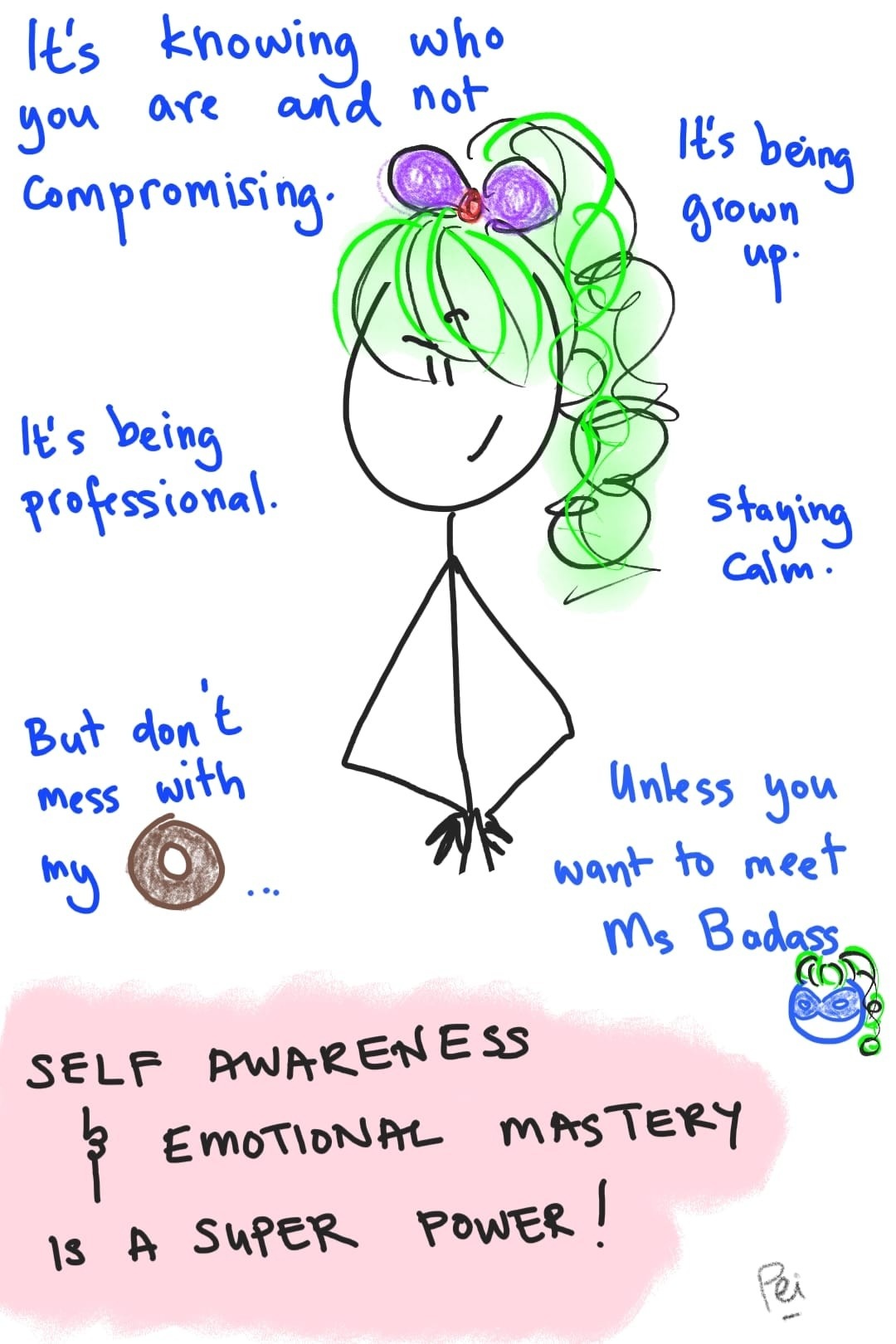Emotional intelligence covers a few areas.
A Consultant who is Self-Aware, will be open to constructive feedback, which accelerates her growth and development.
She can also manage her Self, and is able to keep disruptive emotions and impulses in check. It tells me that she is resilient.
Being Socially Aware allows her to ‘hear’ what other people are saying (and what they are not), so she is able to create and maintain social relationships.
The members of the assembled project team may not have worked with each other before, so it is crucial that we can ‘hit the ground running’.
Gears are kicked up a notch when you work in Consulting. (It can be super exciting!) 🚀
Let’s dive in.
Dan Goleman’s EI Quadrants
I do love frameworks with quadrants; there’s beauty in symmetry. Plus, the number 4 is easy to remember. 😁
It’s been 25 years since his book came out, and it’s interesting to see how it’s stood the test of time. Regardless, I have found this to be an incredibly useful tool and I’d say that it has been instrumental in helping me understand myself and about human behaviour.
1. Self-Awareness
This is key to everything.
Ab. so. lute.l y. Everything.
Without self awareness, nothing changes. ‘❌
“BO? Na. It’s just my natural pheromones.” 🤢
“What do you mean I have a gambling problem? It’s just a few bets on the dogs.”
“The client was absolutely unreasonable. He was clearly wrong, and I had to correct him! I was not in the wrong!”
Without self-awareness, change does not happen.
In order to grow as a person, you need to be aware of your strengths, your weaknesses, your triggers – the patterns of thoughts and behaviours that serve (and doesn’t serve) you.
And then you decide what to do, how you can utilise what you have to get ahead in life.
The best consultants I’ve had the priviledge to work with have been very self aware. Coaching and providing feedback has been easy, in that they were always keen to know what they needed to do to improve.
There are those who did not have this trait, and … suffice to say, many have since moved onto pastures anew.
2. Self Management
Impulse control, at its very basic, That’s what it is.
Staying professional when the sticky smelly brown thing flies around.
When the client gets upset. 😡
When you get feedback that you weren’t expecting.
When you mess up. 😨
Staying professional and calm, and giving thought and space before reacting.
The bigger the space you can provide between event and reaction, the more measured your response will be. That is actually the essence of mature decision making.
3. Social Awareness
It took me awhile to realise that this does not come easy to everyone.
I think it’s about being mindful, and paying attention to your surroundings – especially body language of those around you.
It’s also about curiosity, and courage to ask.
“You look like you’re uneasy about what I just said. What are you thinking? ” 🤨
“It seems like you’re not comfortable with the plan. Do you have some alternative idea?”
“I may be mistaken, but it feels to me that you don’t seem keen to discuss this topic. Am I wrong to feel this way?”
Asking and probing gently and tactfully is instrumental in understanding the mood and energy of the people around you.
Everyone wears masks, and they try to play the role they think others are expecting them to play.
In order to understand what’s really happening, you need to pay attention and and keep learning and honing your senses until you get better and more accurate at reading social cues.
4. Relationship Management
My belief – Being aware of the Self, and of Others, and posessing the skills to manage both is a super power.
It really is. 🦸♀️
The ability to read social cues, and understand your Self means that you will probably be able to connect with others a little bit easier than those who don’t have that ability. This, in turn will help with making friends, finding great life partners, making great business connections, running amazing teams and creating and nuturting relationships.

